Doctors thought I had a urinary tract infection – it was stage 4 colon cancer and these were the hidden signs
A mother-of-three who claimed her GP mistook bowel cancer symptoms for a urinary tract infection on three occasions has urged others to be aware of the telltale signs of the disease.
Zoe Gardner-Lawson, from Bracknell in Berkshire, initially contacted her GP last August after suddenly feeling a constant dull ache in her lower back.
But the 36-year-old was repeatedly prescribed antibiotics over the course of a month, even as the pain worsened.
Then, in September, after complaining that the pain had spread to her abdomen leaving her bedridden, she was urged by her GP to go straight to A&E.
Initial tests showed that she may be suffering from kidney stones.
Only after a full body CT scan did doctors confirm she had a 5cm tumor in her bowel and the HR manager diagnosed her with stage four cancer – the most severe form, meaning it spreads elsewhere in the body.
As she undergoes her fifth round of chemotherapy, Ms Gardner-Lawson is calling for the minimum age for bowel cancer screening to be lowered to ‘at least’ 30.
Recalling her terrifying ordeal, she said: ‘My professor Jamie Murphy told me I could have lived with this tumor for four years before my diagnosis – that’s terrifying.
Zoe Gardner-Lawson, from Bracknell in Berkshire, initially contacted her GP last August after suddenly feeling a constant dull ache in her lower back. In the photo, with son Odin
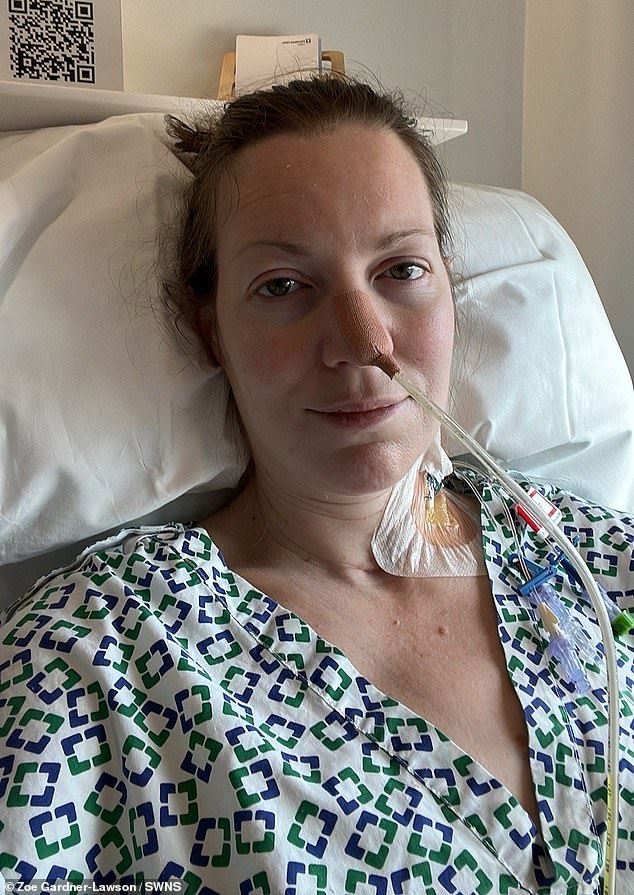
But the 36-year-old was repeatedly prescribed antibiotics over the course of a month, even as the pain worsened
“If all goes well, I still have a chance to reach ‘no evidence of disease’ status, but it all depends on the next few years.
“I’m young enough that they don’t consider it a terminal diagnosis yet.”
“The plan is that once I’ve had my sixth round of chemo, they hope I’ve responded well,” she added.
‘If all goes well, I will have to have a second operation – to remove the remaining stomach lymph nodes and two tumors in my liver.’
There are around 44,000 cases of bowel cancer in Britain and 142,000 in the US each year, making it the fourth most common cancer in both countries.
But cases among young people are increasing, an alarming trend that experts have linked to modern diets, chemical exposures and lifestyles.
Symptoms of colon cancer include changes in bowel habits, such as persistent and new diarrhea or constipation, the need or desire to poop more or less frequently, and blood in the stool.
Stomach pain, a lump in the stomach, bloating, unexpected weight loss and fatigue are some other common symptoms.
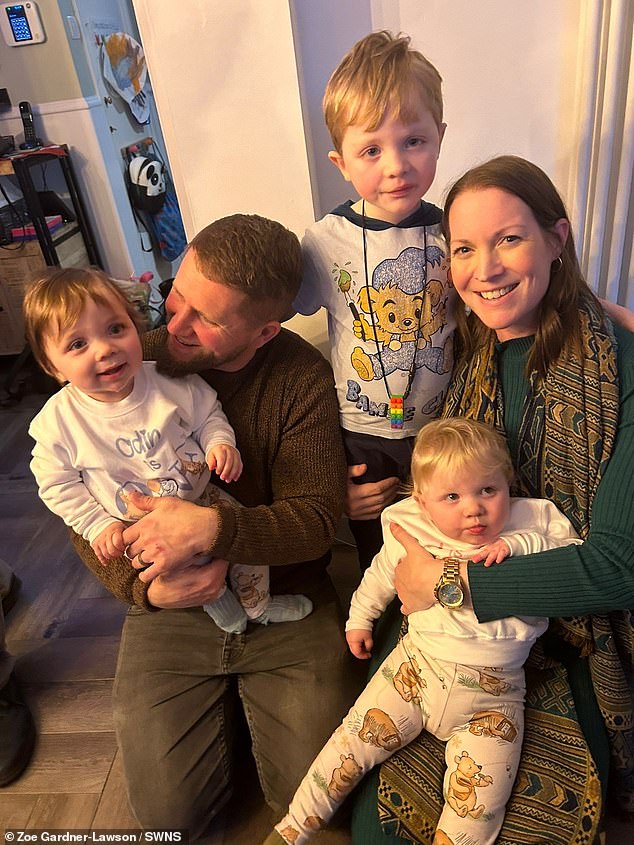
Only after a full body CT scan did doctors confirm she had a 5cm tumor in her bowel and the HR department head diagnosed her with stage four cancer. In the photo Zoe with husband Sam and children Leo, Izzy and Odin
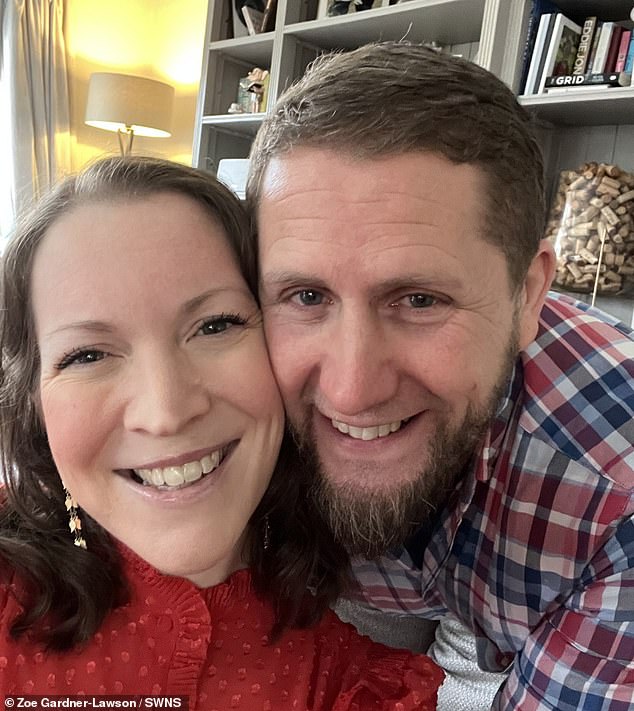
Ms Gardner-Lawson is now undergoing her fifth round of chemotherapy and is calling for the minimum age for bowel cancer screening to be lowered to ‘at least’ 30.
Anyone experiencing these symptoms should contact their GP for advice.
Always feeling ‘fit and healthy’ and rarely worried about her health, Mrs Gardner-Lawson said she was concerned when she started experiencing lower back pain and made a telephone appointment with her GP.
“There was just no change and by my third dose (of antibiotics) I had really deteriorated,” she said.
‘I was basically bedridden. I felt so unwell and the back pain had spread to my stomach.’
It was only after a fourth appointment with her GP on September 19 that she was urgently advised to go to the emergency room.
“My blood was checked for infection markers called creatine-reactive protein,” she added.
‘They increased until they reached 364 n/mol – a normal range for women is 52.9 n/mol and 91.9 n/mol.
“A general surgeon came to me and he said it looked like I had fluid buildup on my abdomen.
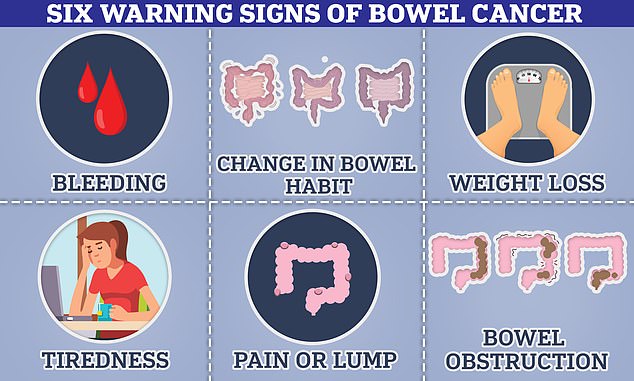
Bowel cancer can cause you to have blood in your poop, a change in bowel habits, or a lump in your bowel that can cause blockages. Some people also suffer from weight loss as a result of these symptoms
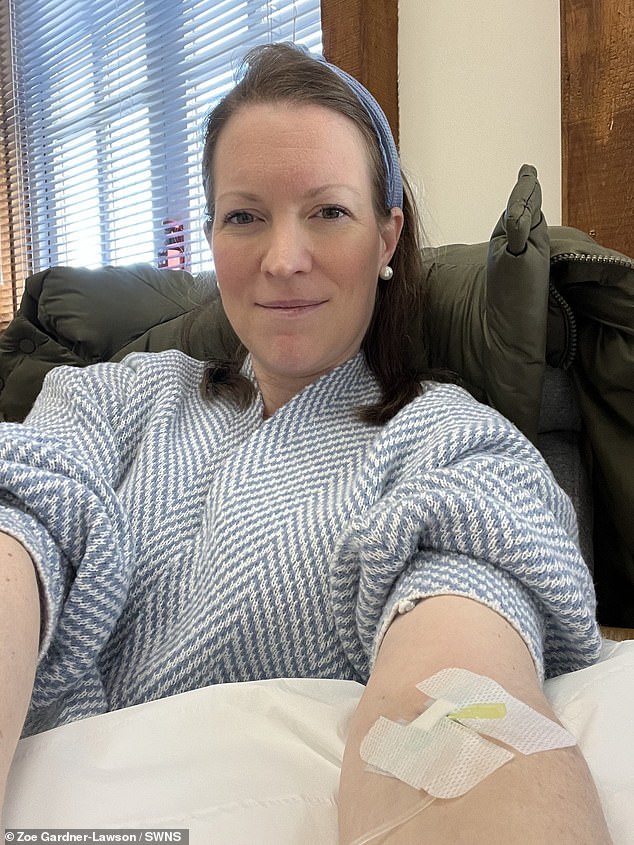
Always feeling ‘fit and healthy’ and rarely worried about her health, Mrs Gardner-Lawson said she was concerned when she started experiencing lower back pain and made a telephone appointment with her GP.
‘I then threw my toys out of the pram and said I wouldn’t leave until I had a full body CT scan.’
The results showed that she had a tumor the size of a lime in her intestine that had spread to her liver, peritoneum (a membrane that surrounds the abdominal organs) and the lymph nodes in the stomach.
After being transferred to the Cleveland Clinic in central London, she underwent a four-hour operation in October to remove as much of the tumor as possible and was told she needed chemotherapy.
“I’ve tolerated it as well as anyone else, it’s pretty hardcore,” Ms Gardner-Lawson said.
‘I’m on round five out of eight in total – it’s three chemo drugs per round.
“I basically just took the throw the kitchen sink approach to improve my prognosis as much as possible.”
But she believes that if she had been offered a fecal immunochemical test (FIT) earlier, doctors might have discovered her cancer years ago.
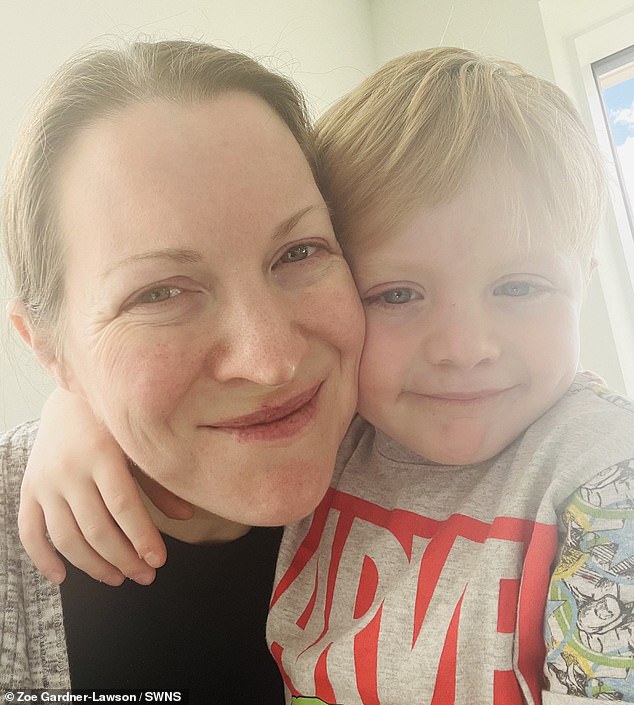
After being transferred to the Cleveland Clinic in central London, she underwent a four-hour operation in October to remove as much of the tumor as possible and was told she needed chemotherapy.
People aged 60 to 74 who are registered with a GP practice and live in England will automatically be sent a FIT kit every two years.
But as part of plans to lower the age of people taking the test to 50 by 2025, the kits are also currently being rolled out to people aged 54 and over.
People use a supplied stick to collect a small sample of poo from the toilet, which they then send back to an NHS laboratory in a plastic jar.
Scientists then check for small amounts of blood in the poop – which are not visible to the naked eye – as this can be an early sign that something is wrong.
Now Ms Gardner-Lawson believes the standard testing age applies should be reduced to ‘at least’ 30, if not 25.
“If my disease had been detected earlier, it would have been easier to treat… I think the minimum age for testing should be lowered,” she added.
Her ordeal comes as experts continue to warn of a worrying rise in cases of bowel cancer under the age of 50, which has baffled doctors around the world.
The disease, the third most common cancer in Britain, is the same type that killed Dame Deborah James at age 40 in 2022.

Dame Deborah James, nicknamed the ‘gut babe’, has raised more than £11.3 million for cancer research and is credited with raising awareness of the disease, which took her life in 2022 at the age of 40.
Although the vast majority of diagnoses affect people over the age of 50, rates have declined or remained stable in older age groups, while diagnoses in younger adults have increased by 50 percent over the past thirty years.
Cancer Research UK estimates that more than half (54 percent) of bowel cancer cases in Britain are preventable.
Doctors have suggested that obesity, overuse of antibiotics, cell phone radiation and even invisible plastic particles in drinking water are potential triggers.
However, a growing number of experts also point to ultra-processed foods as the cause.
